Matching games are standard social games for beginners. They are also known as memory games.
What’s fun about matching games is you can find just about any theme you are working on or related to any character the child favors. They are typically low-cost games or available as PDF downloads on many educational sites for free. You can also create your own version.
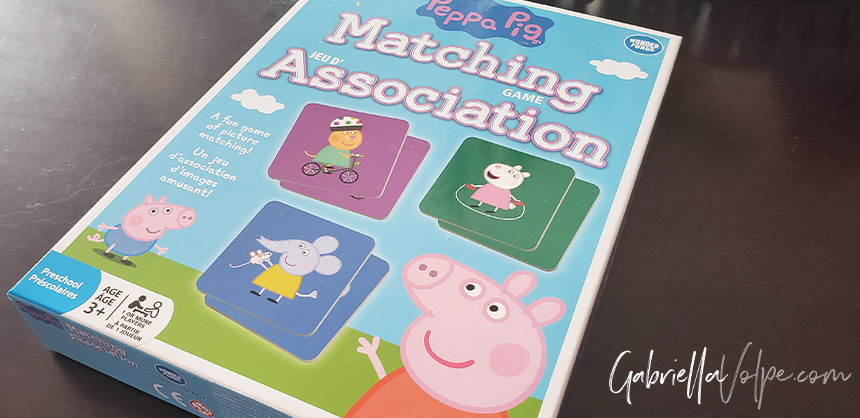
My son loves Peppa Pig and, sure enough, there was a matching game on the market for a character he likes!
Matching Game Challenges for Neurodivergent and Disabled Kids
- Too many pieces make it challenging to keep track
- Manipulating loose pieces
Skill-Building with Matching Games
Matching games build:
- Concentration
- Visual tracking
- Visual memory
- Visual discrimination
- Short-term memory
- Attention to detail
- Classification
- Vocabulary
Suggestions for Adapting Matching Games
Create a board. Introduce this game using a master board as a base. Photocopy the cards to create the board. Using a board instead of individual cards makes it more manageable for kids who need support with fine motor activities.
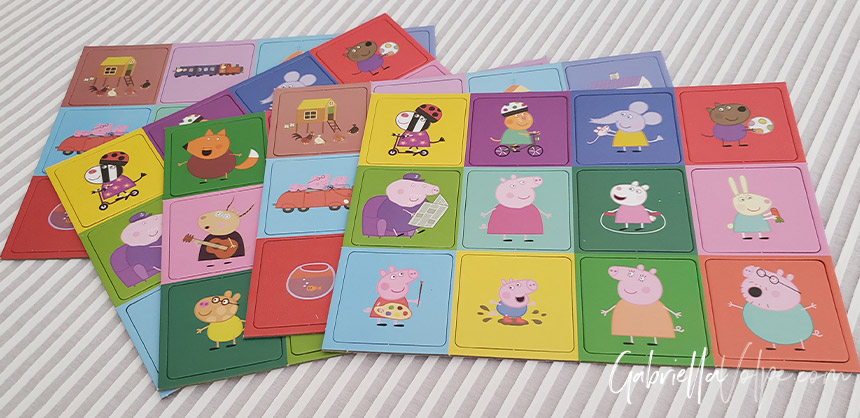
This Peppa Pig Matching Game came with four sets of cards.
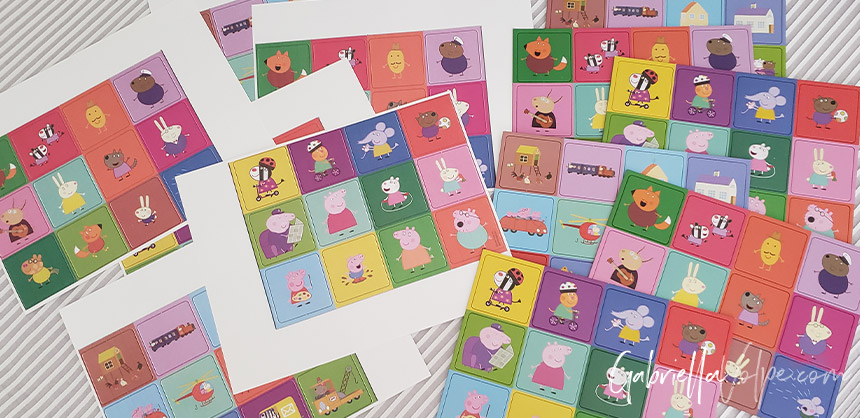
Before I punched out the individual die-cuts, I photocopied and laminated the cards.
Reduce the number of cards by creating strip boards. Break down the board into strips.
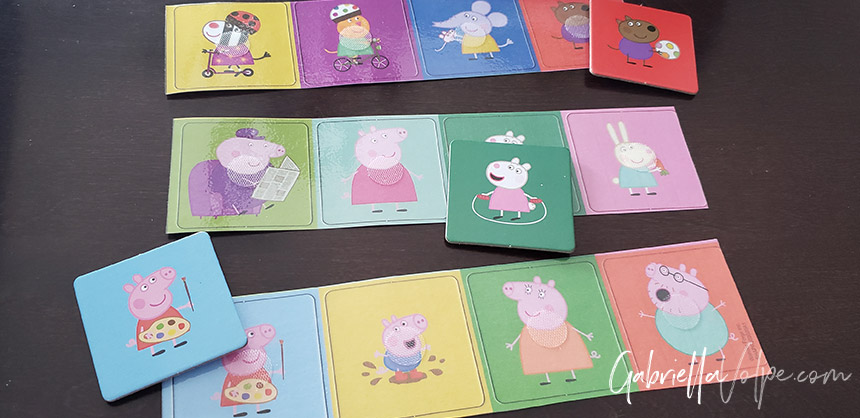
This Peppa Pig Matching game contains 72 cards which can be overwhelming for kids just starting with a matching game. I cut up each laminated board into strips of four. Instead of 12 images at once, we begin with only four.
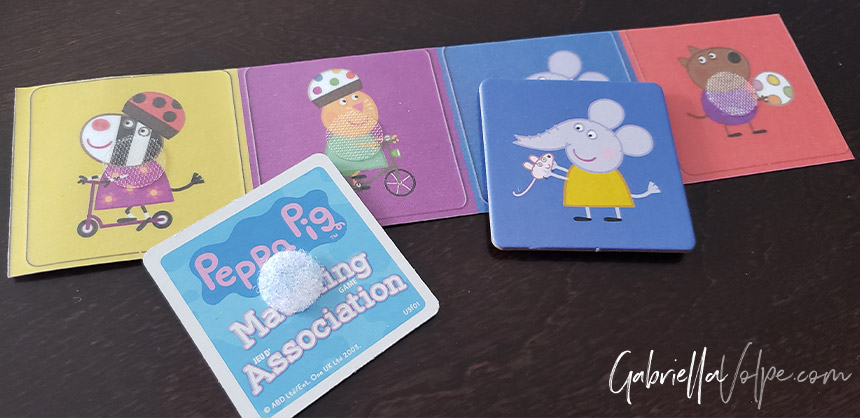
I added loop and hook stickies on each image on the strip and on the back of the original cardboard cards. This way, I have a beginner-level matching game with a sturdy board! Tip: Use clear loop and hook sets so that the images on the boards remain visible.
Work up to using the full board. To play the next level of the matching game, work up to using the entire board created in the first step above.
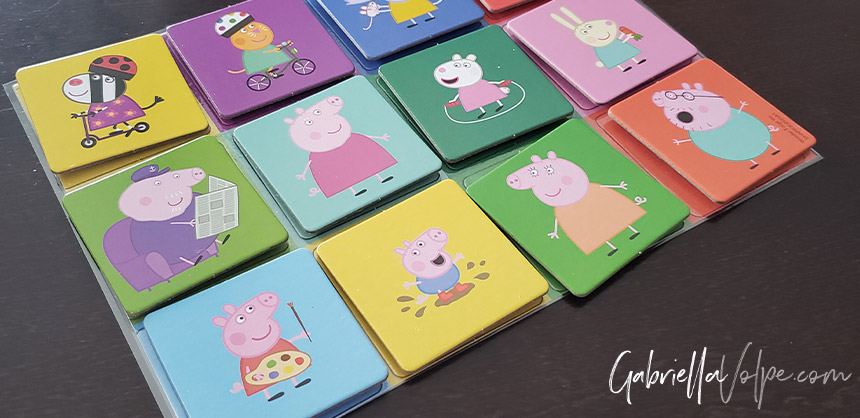
Work up to playing the game according to the original rules. The loop and hook dots continue to help easily manage the cards.
Use the cards beyond matching. Any game with many cards lends itself to multiple uses beyond the game instructions.
Here’s how I extended this particular game:
- Sort game cards by color
- Name the characters
- Identify the first letter of the object or character’s name
- Count the vehicles
- Find the object or character that begins with a specific letter sound
- Sort by emotions
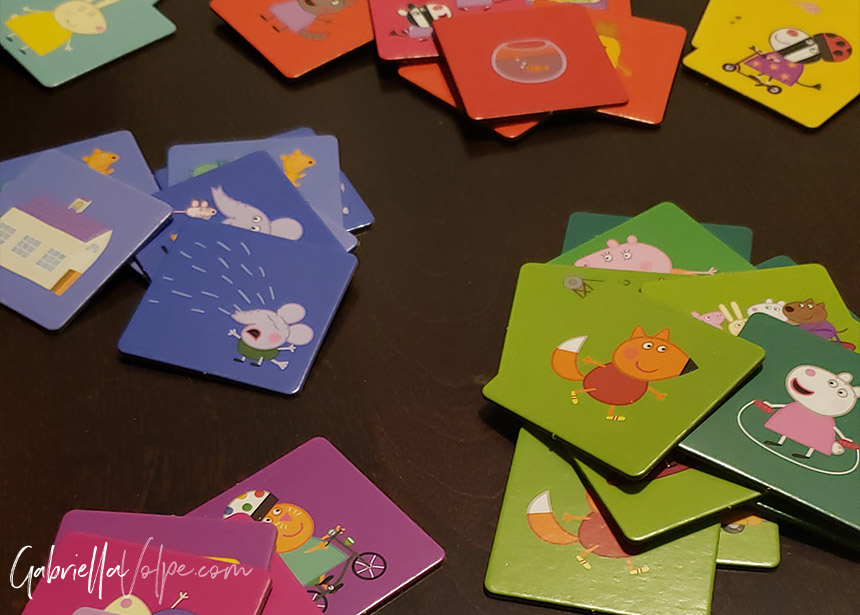
Sort matching game cards by color.
Related Articles
Want to learning how to use the games you already own and make them accessible to all children?
Find out more about the Adapting Board Games Video Series here.
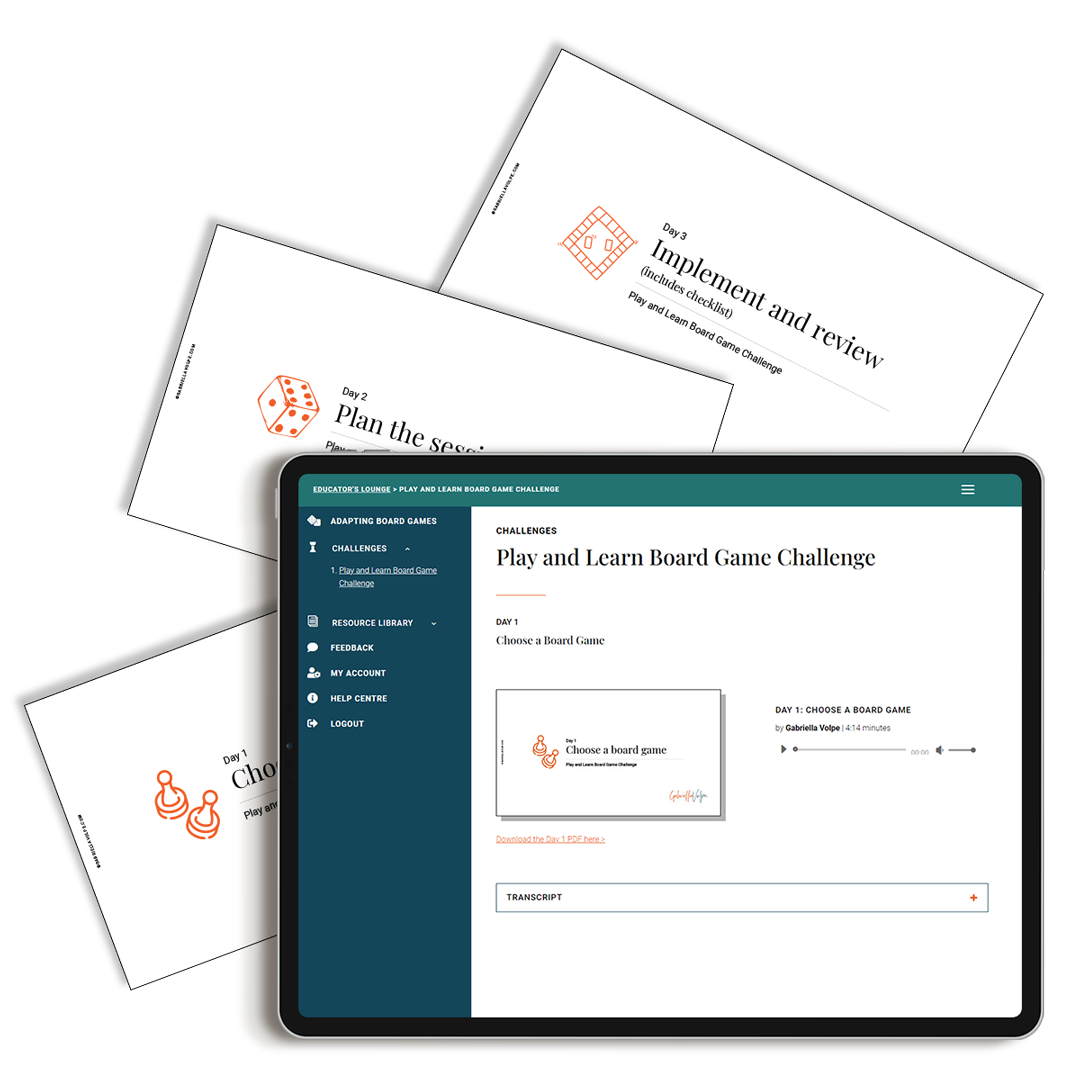
Play and Learn Board Game Challenge
Take the free 3-day challenge that takes you from choosing to implementing board game play with neurodivergent and disabled learners.

0 Comments